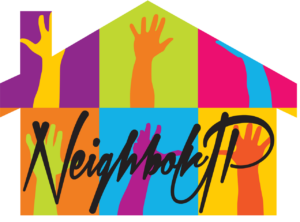Community of Practice for Community Builders
Our Community of Practice for Community Builders meets monthly, alternating evening and daytime hours, brief and in-depth conversations, and is offered virtually and in person at our office in the Midtown/Hough area.
Our Community of Practice (CoP) is a monthly learning exchange open to anyone interested in building community. Participants can share concerns, get support for a community based challenge, give and get good information and/or learn something new as it relates to the work of grassroots organizing.
Each CoP session offers best practices and new knowledge to advance the professional practice of community building. Participation on an ongoing basis is helpful but not required; drop in as your time allows. "It's an invitation, not an obligation."
The Neighbor Up Community of Practice was built on face-to-face meetings in our original office at the Agora building. In the earliest weeks of the pandemic shutdown in the spring of 2020, we developed a template for a virtual experience. Virtual CoP was offered weekly to provide support and good information in a highly stressful time when clear and reliable information was difficult to obtain and share with community members.
We look to offer a mix of in-person and web-based collaborative environments to communicate, connect and conduct community activities.
While people have learned together through informal communities of practice throughout history, the primary use of the concept originated in learning theory. Cognitive anthropologists Jean Lave and Etienne Wenger coined the term "community of practice" when studying apprenticeships as a learning model—the term referred to the community that acts as a living curriculum. Once named, the researchers started to see communities everywhere, even when no formal apprenticeship system existed.
To learn more about the origins and theory of communities of practice, see:
http://wenger-trayner.com/introduction-to-communities-of-practice

